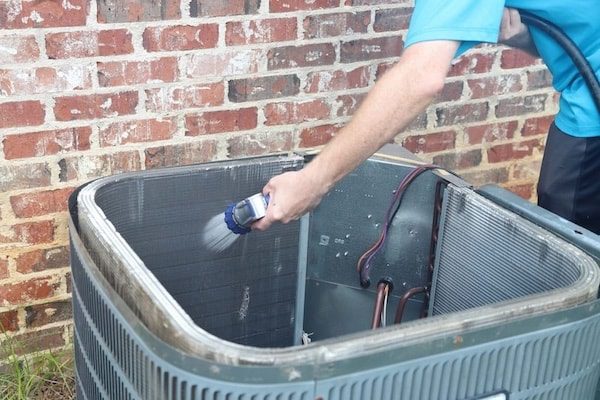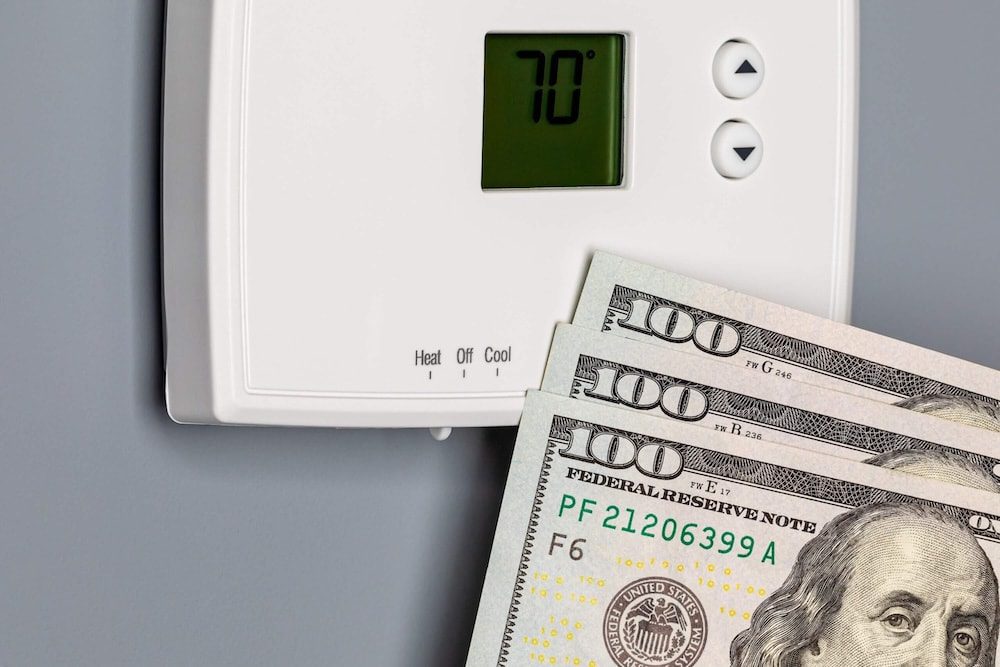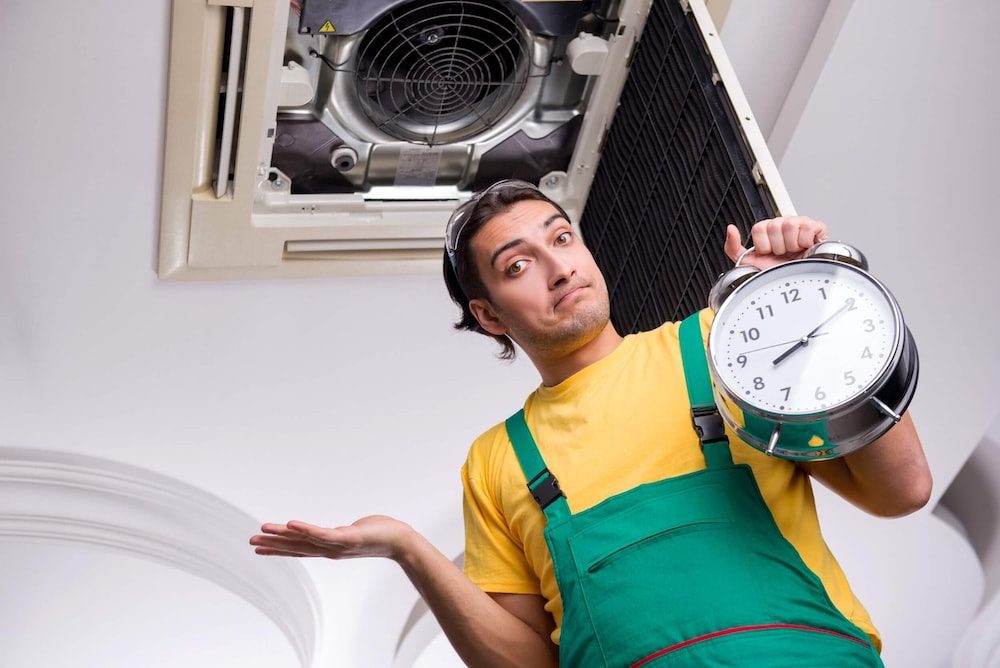Most experts recommend servicing your HVAC system at least once a year to keep it running smoothly and avoid unexpected breakdowns. This preventative maintenance helps identify potential issues before they turn into more expensive repairs and ensures efficient heating and cooling throughout the year. Some professionals suggest servicing in the spring or fall, just before heavy usage during the hottest or coldest months.
Proper maintenance also extends the life of the HVAC system and helps maintain good indoor air quality. Some homeowners may opt for a comprehensive maintenance and cleaning every three to five years, but skipping annual check-ups can risk performance and energy efficiency. Discover how the right maintenance schedule can save money and keep any home comfortable season after season by learning more about the details and benefits of regular HVAC care.
Why Regular HVAC Maintenance Matters
Regular HVAC maintenance helps keep systems efficient, reduces breakdowns, and can extend the lifespan of equipment. The HVAC maintenance frequency is suggested for an important reason. Neglecting routine checks can lead to avoidable repairs, higher energy costs, and indoor air quality issues.
Key Benefits of Adhering to HVAC Upkeep Intervals
Energy efficiency: Well-maintained systems consume less energy and deliver reliable heating and cooling. Studies show that a tuned HVAC system can run more efficiently and lower monthly utility bills.
Extending equipment life: Scheduled inspections and cleanings, such as replacing filters and checking refrigerant, help prevent excessive wear and costly failures. Timely maintenance reduces stress on major components and keeps warranties valid.
Indoor air quality: Cleaning and servicing the unit removes dust, debris, and mold from ducts and filters. This improves air quality and makes the home safer for people with allergies or respiratory issues. Cleaner air also means fewer odors and contaminants circulating in the space.
Home comfort and safety: System checks ensure every part operates within manufacturer specifications. Regular care keeps temperatures consistent and helps avoid hazards like carbon monoxide leaks or electrical shorts. Homeowners experience greater peace of mind knowing their HVAC unit is in reliable condition.
Potential Consequences of Neglect
Failing to schedule HVAC maintenance often leads to a cascade of problems. Dust buildup, clogged filters, and unchecked refrigerant leaks force the system to work harder and risk sudden breakdowns.
Unmaintained systems lose efficiency and consume more electricity, resulting in higher utility bills. The equipment may also wear out faster, leading to major repairs or premature replacement that could have been avoided.
Poor maintenance can worsen indoor air quality. Dirty coils, moldy ducts, and neglected filters circulate allergens and pollutants, creating discomfort and potential health risks for occupants.
There are also safety risks, such as undetected gas leaks or electrical malfunctions that could develop in neglected units. These issues can compromise comfort, safety, and even the structural condition of the property.
Determining How Often to Service Your HVAC System

Maintaining an HVAC system regularly can prevent costly repairs and extend its lifespan. Knowing how often to schedule maintenance depends on several factors, manufacturer recommendations, and warning signs specific to the equipment.
Factors That Influence Service Frequency
#1 System age plays a major role. Older units may require more frequent checkups, while newer systems might function reliably with annual servicing.
#2 Usage patterns also matter. A system that runs year-round will benefit from more frequent maintenance than one used only seasonally.
#3 Local climate can impact servicing needs. Homes in dusty or high-humidity areas will usually need more frequent filter changes and cleanings.
#4 Household factors include the presence of pets, number of occupants, and indoor air quality concerns. Each of these can affect how quickly filters and components become dirty or worn.
#5 The type of HVAC system—such as a heat pump, central air, or furnace—also affects upkeep intervals and service complexity.
When to Service Your HVAC System
Most professionals recommend annual maintenance for standard HVAC systems. This fits common guidance advising homeowners to schedule servicing at least once per year, ideally before peak usage seasons. For example, spring maintenance helps prepare the system for summer cooling, while a fall check readies heating components.
Some technicians suggest a biannual schedule for the best results—once for the cooling side (spring) and once for the heating side (fall). High-usage environments, older systems, or homes with special needs (like multiple pets or residents with allergies) can benefit from this increased frequency.
Recognizing When Your System Needs Service
Several warning signs indicate immediate servicing is needed. Lukewarm air, unusual noises, frequent cycling, or noticeable spikes in energy bills often mean a problem.
Poor airflow, foul odors, or visible dust buildup at vents should prompt a professional inspection. If a system struggles to maintain a set temperature or triggers frequent thermostat adjustments, servicing may be overdue.
Regular filter checks—ideally every 1-3 months—can prevent minor issues from escalating. Addressing these signs quickly helps maintain efficiency and reduces the risk of unexpected breakdowns.
What to Expect During an HVAC Service
A standard HVAC service involves a comprehensive inspection, cleaning, and performance check. Technicians focus on critical system components, address common problems, and help homeowners avoid costly repairs through ongoing preventive care.
Key Components Checked
Technicians review a list of essential parts during any routine maintenance. They examine air filters, coils, refrigerant levels, blower motors, and thermostat function. Electrical connections and controls are tested for safety, while drain lines are inspected to prevent clogs and leaks.
Regular checks also include cleaning evaporator and condenser coils, which helps maintain system efficiency. Inspecting ductwork for leaks and checking for proper airflow are standard steps. Below is a summary of the main components and their inspection focus:
Common Problems Addressed
Many recurring HVAC issues are caught and resolved during these visits. Clogged filters often restrict airflow, causing strain on the system. Low refrigerant levels, dirty sensors, or faulty thermostats can lead to uneven heating or cooling.
Technicians also address worn belts, loose electrical connections, and blocked drains. Early detection of these problems prevents breakdowns and extends equipment life. They may recommend replacing worn parts or making adjustments to optimize performance. Regular service also helps identify safety issues like gas leaks or combustion problems before they worsen.

Cost Savings Through Preventive Maintenance
Annual HVAC service can reduce the likelihood of unexpected repair bills. Routine cleaning and adjustments keep equipment operating efficiently and lower energy usage. Addressing small issues early helps prevent expensive component failures later.
In many cases, well-maintained systems have a longer lifespan. This can delay the need for costly replacements. According to industry recommendations, having an HVAC system inspected yearly can result in significant cost savings over time compared to the expense of urgent repairs or emergency service calls.
Professional HVAC Maintenance With Service Air Eastern Shore
Service Air Eastern Shore delivers comprehensive HVAC maintenance tailored to local needs. Their process puts efficiency, reliability, and regional expertise at the forefront, making us a strong choice for Eastern Shore homeowners seeking dependable service.
Overview of Our Service Process
Service Air Eastern Shore begins every maintenance visit with a thorough inspection of the HVAC system. Technicians check filters, thermostats, electrical connections, and refrigerant levels to spot issues early and prevent breakdowns.
A multi-point checklist ensures all essential components, such as coils, blower motors, and drain lines, are cleaned and adjusted. This step-by-step approach helps maximize energy efficiency and prolongs equipment life.
Customers receive a clear explanation of findings and recommendations for minor repairs or improvements. All services are performed using up-to-date industry practices, and repairs are backed by a three-year guarantee, providing homeowners with peace of mind.





